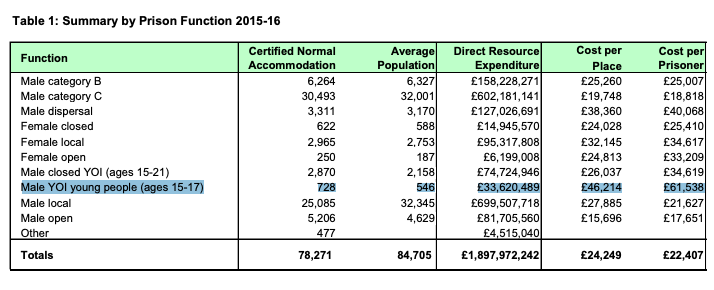It costs more per year to keep someone aged 15-17 in a young offenders& #39; institution than it would to send them to Eton.
After a decade of austerity, the literal wording of the slogan & #39;defund the police& #39; doesn& #39;t have quite the same salience as it does in the United States. But look at where we spend vast sums of money: on late intervention, rather than education, housing, and mental health care.
England & Wales has dire reoffending rates (40% in 12 months, 75% in 9 years). Prison isn& #39;t working. But we don& #39;t want to explore alternatives, in case in demonstrates that & #39;something for nothing& #39; is actually better at managing social problems than punishing their existence.
These issues, by the way, are inseparable from the children& #39;s social care system.
Fewer than 1% of under 18s enter the local authority care system, but care leavers account for around a quarter of the adult prison population, and half of those in youth custody.
Fewer than 1% of under 18s enter the local authority care system, but care leavers account for around a quarter of the adult prison population, and half of those in youth custody.
What kind of support could well-funded social services provide to families *before* a care order is needed? How can the state address the conditions (bad housing, deprivation, precarious employment) which contribute to family breakdown? How can the care system itself be improved?

 Read on Twitter
Read on Twitter


